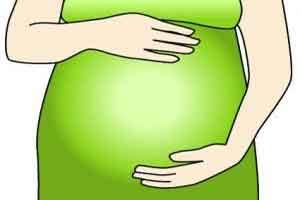- Home
- Editorial
- News
- Practice Guidelines
- Anesthesiology Guidelines
- Cancer Guidelines
- Cardiac Sciences Guidelines
- Critical Care Guidelines
- Dentistry Guidelines
- Dermatology Guidelines
- Diabetes and Endo Guidelines
- Diagnostics Guidelines
- ENT Guidelines
- Featured Practice Guidelines
- Gastroenterology Guidelines
- Geriatrics Guidelines
- Medicine Guidelines
- Nephrology Guidelines
- Neurosciences Guidelines
- Obs and Gynae Guidelines
- Ophthalmology Guidelines
- Orthopaedics Guidelines
- Paediatrics Guidelines
- Psychiatry Guidelines
- Pulmonology Guidelines
- Radiology Guidelines
- Surgery Guidelines
- Urology Guidelines
Endometrial scratch appears beneficial in IVF conception: Study

Helsinki : There is a much disputed claim that "injury" to the lining of the uterus whether inadvertent or deliberate increases the chance of embryo implantation and thus the chance of pregnancy in certain groups of women having IVF. The "injury" has usually been performed as a biopsy from the womb lining (endometrium), whose action is believed to cause a favourable inflammation ("scratch") within the endometrium thereby making it more receptive to an implanting embryo. Indeed, the success of more complex uterine surgery in some studies has even been attributed to the scratch and not to the surgery itself.
Now, a review of randomised controlled trials evaluating endometrial scratching in women planning to have intrauterine insemination (IUI) or attempting to conceive spontaneously (with or without ovulation induction) suggests that endometrial scratching may well be beneficial in couples trying to conceive naturally or with IUI, although "the quality of the available evidence is low".
The review was performed by collaborators from Cochrane, an independent network of rearchers whose aim is to gather and summarise the best evidence in different medical disciplines. This Cochrane review of endometrial scratching is presented as a poster at this year's Annual Meeting of ESHRE by Sarah Lensen from the Department of Obstetrics and Gynaecology, University of Auckland, New Zealand.
Eight eligible trials with a total of 1180 women were included in the review, in which endometrial scratching was compared to no intervention or a mock intervention. The primary outcomes were live birth/ongoing pregnancy and pain from the intervention.
Following analysis, endometrial scratching appeared to increase the chance of clinical pregnancy and live birth compared to no procedure or a placebo procedure; the difference in outcome was statistically significant and appeared to roughly double the chance of live birth compared to no intervention (relative risk 2.22). Ms Lensen explained that endometrial scratching would increase the normal chance of a live birth or ongoing pregnancy from 9% over a set period of time to somewhere betweem 14 and 28%.
However, the quality of the studies from which the result was derived was descibed as "very low-quality". "The results must be treated with caution," said Ms Lensen, as most of the included trials were associated with a serious risk of bias. There was no evidence that endometrial scratching has any effect on miscarriage, ectopic pregnancy, or multiple pregnancy. Pain during the scratch procedure was reported by one study as an average of 6/10.
Ms Lensen described endometrial scratching as "a cheap and simple procedure" which can be conducted without analgesia during a short clinic visit; it does, however, require an internal examination which is associated with pain and discomfort.
Abstract P-287
Endometrial scratching for pregnancy following sexual intercourse or intrauterine insemination (IUI): a Cochrane systematic review and meta-analysis
Notes
1. Successful implantation (whether in natural or assisted conception) depends on embryo quality and a receptive endometrium. The "window" of favourable implantation is maintained by hormones and other molecules, and it has been proposed that cytokines released after endometrial injury and during the repair process induce endometrial changes favourable to implantation.
2. A Cochrane review of endometrial injury prior to IVF found insufficient evidence for any effect, but did advise " not to perform endometrial injury on the day of oocyte retrieval because it appears to significantly reduce clinical and ongoing pregnancy rates". Nastri CO, Gibreel A, Raine-Fenning N, et al. Endometrial injury in women undergoing assisted reproductive techniques. Cochrane Database Syst Rev. 2012; 7: CD009517.

Disclaimer: This site is primarily intended for healthcare professionals. Any content/information on this website does not replace the advice of medical and/or health professionals and should not be construed as medical/diagnostic advice/endorsement or prescription. Use of this site is subject to our terms of use, privacy policy, advertisement policy. © 2020 Minerva Medical Treatment Pvt Ltd